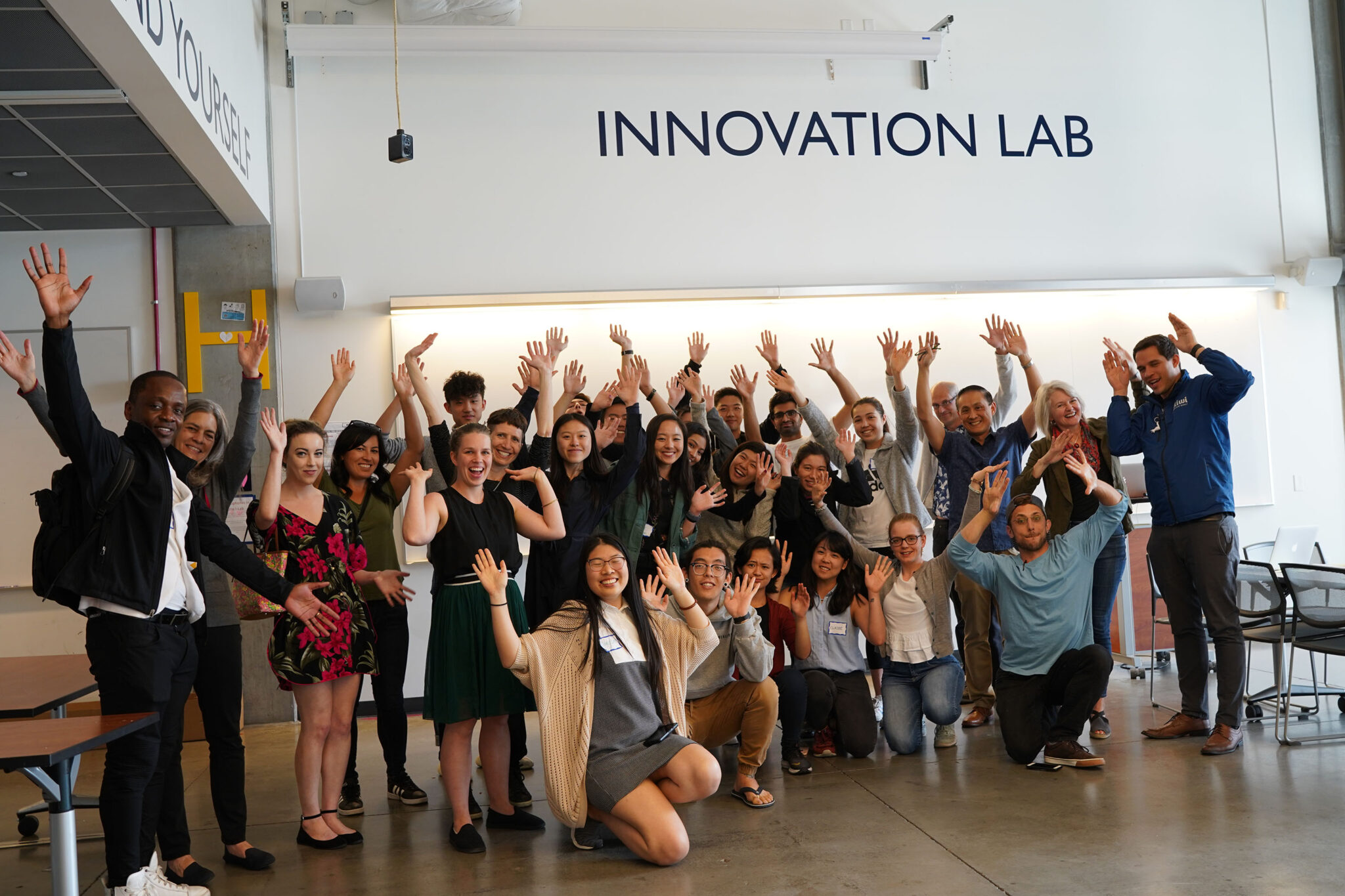From the Field
Designing the Future of Berkeley’s Beverage Service
This year, in an effort led by students, BFI and campus partners formed the Coalition for Healthy Campus Food and Beverages to bring more stakeholders into campus decision-making on food and beverage choices, uplift Berkeley values through procurement practices, and raise awareness of human and planetary health in the process.

65,000 people eat and drink at UC Berkeley every day. We are currently in year eight of a 10-year exclusive pouring rights contract with PepsiCo for beverage service across Cal Dining dining halls and retail outlets, student housing, campus vending machines, athletics concessions, and special events. While the contract provides product donations and annual sponsorship of $1.3 million (0.05% of the annual campus budget of $2.8 billion) as operational funds, many members of campus are concerned with the presence of sugar-sweetened beverages (SSBs) on campus.
This year, in an effort led by students, BFI and campus partners formed the Coalition for Healthy Campus Food and Beverages to bring more stakeholders into campus decision-making on food and beverage choices, uplift Berkeley values through procurement practices, and raise awareness of human and planetary health in the process. The Coalition recognizes that SSBs and many of the companies that market them are responsible for various negative health and sustainability impacts from aggressively marketing SSBs to children of color, to funding biased studies, to actively undermining public health efforts and policies to address health implications associated with SSBs.
The Coalition believes that students should be at the center of future decisions about campus beverage service, as they are the primary consumers at the sites that fall under the current contract. Moreover, the nexus of issues that go into addressing campus procurement needs serves as a real-world learning lab for the complex systems thinking that Berkeley teaches in our food-related coursework. To that end, on April 26–27 the Coalition hosted the Healthy Campus Food and Beverages Innovation Challenge to engage students in envisioning the next ten years of beverage service at UC Berkeley. This designathon/hackathon challenged participants to answer the question:
Beverage service is a key leverage point for creating a healthy campus culture. How can future beverage service contract(s) uplift UC Berkeley values by promoting human and planetary health and corporate responsibility while simultaneously providing financial support for UC Berkeley programs?
The Innovation Challenge fulfilled the goal of bringing together multiple disciplines and sectors of campus. Together with the Berkeley Food Institute and Center for Responsible Business, a team of 14 undergraduate and graduate students from 7 student groups conceptualized and organized the event, with 10 additional volunteers; 16 students (representing 9 majors) formed 4 teams to compete in the challenge; 6 cross-disciplinary faculty and staff and 5 outside food innovation experts served as panelists and judges, and 20 other members of campus joined as audience.
The event started with an evening panel of faculty and staff experts who presented five different perspectives on the challenge: health equity, environmental sustainability, sponsorship needs, procurement logistics, and corporate responsibility. Anna V. Bohbot of the LinkedIn Food and Beverage Program, Clayton Chan of San Francisco Soup Company, and Daniel Henroid of Nutrition and Food Services at UC San Francisco Health then provided outside perspectives for innovative solutions instituted at each of their organizations.
Students then formed teams so as to have the opportunity to hack the night away. The next morning, Sara Beckman, faculty at the Haas School of Business, led the teams through a workshop on systems thinking. We mapped such questions as: If you change one lever, such as procuring beverages from multiple vendors, what opportunities and limitations might that bring to the cost of your product? If you lead as sustainability as your primary lens, what ripple effects might that have on health?
After the workshop students had a 3-hour ideation designathon, by the end of which they would need to be ready with a pitch deck that addressed the core challenge problem and presented a financial analysis, risks and mitigants, and implementation steps. The teams presented their solutions before the judges, who evaluated the proposals for mission alignment, inclusivity, feasibility, financial analysis, and innovation.
The judges had their work cut out for them! Each team proposed uniquely elegant solutions. One team proposed locking dining hall soda dispensers during breakfast and late night service; another proposed using beverage sales data monetization as an additional revenue stream; a third solution suggested a progressive tax on beverages based on level of sugar content. All teams were in favor of warning labels and graphics of sugar content on beverage dispensers, and proposed technological innovations to ease utilization of reusable containers.
While assigning first through fourth place prizes, the judges challenged the teams to collaborate with each other on solutions 2.0. Building on the momentum of the 24-hour Innovation Challenge, in Fall 2019, students from several campus courses will have the opportunity to work on a semester-long case study to propose a viable roadmap for the next ten years of beverage service at UC Berkeley.